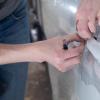A Few Steps to Cost-Efficient Car Performance

Do you take the necessary precautions to keep up your car’s performance? Skipping vehicle safety and maintenance can not only undermine your car’s condition and hence your finances, but it can also seriously endanger you and your passengers. Follow along to learn of some steps to maintain your car, money, and safety.
Check Your Car Regularly
At least once each month, you should check on some of the essential fluids and other important points on your car. Each item is relatively simple, and running through your checklist can become second nature once you get used to it.
In the fluids category, make sure you check all of the following fluid levels and top them up if necessary:
- oil
- coolant
- anti-freeze
- window washing liquid
- brake fluid
- power steering fluid
- transmission fluid
- battery acid
In addition to fluid levels, you should also do a monthly check of the following:
- Tire pressure, including the spare tyre
- Brakes, including emergency brakes
- Horn
- Head and tail lights
- All of your turn signals and emergency flashers
- Windshield wipers
- Belts
- Air filter
- Seat belts
- Battery (for signs of corrosion)
Follow the Manufacturer's Recommended Maintenance Schedule
Ignoring your maintenance schedule and only taking care of your car when you remember about it is not the way to keep your car in good (and cost-efficient) condition. Your vehicle manufacturer designed the car to work at its best when maintained according to the schedule. Your car's driver manual will usually contain this information. If you don't have a copy, you can obtain one by searching for it online, or asking your manufacturer for a copy.
Keeping your car maintained involves a little more than oil changes and new tires every once in a while. Get the schedule, learn it, and use it to keep your car at its best for longer.
Be Prepared
While you can take steps with regular checks and maintenance on your car to help keep problems at bay, you should also consider what will happen if there is an emergency or accident. For instance, you should keep some basic safety and first aid items in your car, just in case you ever become stranded somewhere and you car is all you have. Even a short wait in the winter could seem like forever if you're cold and hungry when the car won't start. Bear in mind, too, that you might need winter tires in some locations.
Cars and Your Money
Keeping your car ins good running order helps you save money. But there are a few more financial considerations that shouldn't be ignored:
- Car Insurance: Do a car insurance comparison to ensure that you have the right amount of coverage for your needs. You will also want to make sure that any changes to your car or your coverage needs are reflected on your policy. Where do you stand when it comes to extras like windshield protection or towing coverage?
- Emergency Savings: Keeping money in a savings account can be a great fallback option in case you ever need to pay for something for your car, whether it's a breakdown recovery or a new set of brake discs. This can help soften the blow of any unexpected expenses. It can also provide you with a fund from which to draw the excess you may have to pay if you make a car insurance claim.
Citations:
This article is by cars and insurance blogger Brian Neese, who enjoys sharing his favourite tips online to help people save money. Read more at http://www.carinsurancecomparison.com.au!
More to Read:
Previous Posts:



